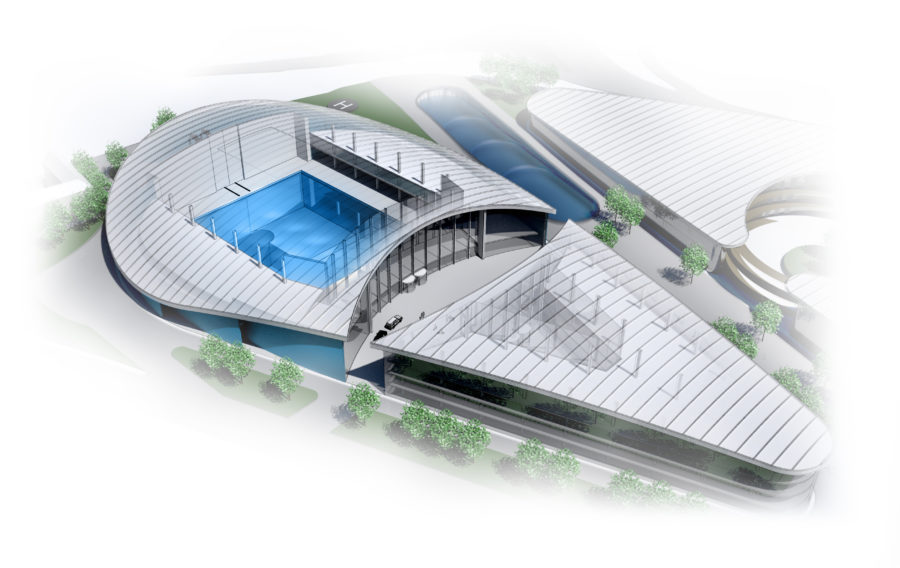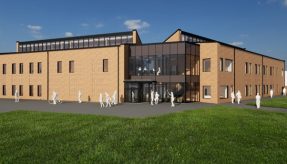
A multi million regeneration project of RAF Henlow will see the world’s first commercial deep sea to space research, training and test centre developed at the site.
Due to close in 2020, RAF Henlow will be regenerated into a science, innovation and technology park, with Blue Abyss developed to fulfil a crucial role in the growth of the UK’s space industry. The DIO and MOD have been exploring opportunities to secure the sustainable redevelopment of the Henlow site since the announcement of its closure, and are working closely with the council to secure this.
The Blue Abyss team is working with Central Bedfordshire Council to create the £120M facility, designed by London’s Gherkin Architect Robin Partington.
It is hoped the centre will be operating by 2019, when it will house the world’s biggest 50m deep pool, a hotel, an astronaut training centre including parabolic flight capability, hypobaric and hyperbaric chambers and a human performance centre to enable divers, astronauts and top athletes to perform at the peak of their potential. Plans also include a conference theatre and training rooms, and a 120-bed hotel, supporting some 160 new jobs.
While there are plans to reuse some facilities at RAF Henlow, including a centrifuge base already installed at the site for its long-arm human centrifuge for high-G astronaut training.
Blue Abyss will provide an arena for pioneering research and development into extreme environments, which in turn will enable better human performance in deep sea and space environments by encouraging innovation. The research and development will help to reduce risk, test operational procedures, improve performance and aid exploration in these environments.
The centre will also offer a wide range of experiential ‘space preparation’ packages for groups and individuals.
Blue Abyss chief executive John Vickers said its aim was to transform human life science research and performance training in extreme environments, focusing on advanced commercial diving skills, underwater and space robotics, human spaceflight preparation, professional athlete fitness and healthcare from a better understanding of human physiology under extreme conditions.
“Having a centrifuge base already there is an important feature because it’s the most expensive and difficult element of the equipment to install.” He said.
“Being part of something bigger, working closely with a proactive council in its enabling and planning capacity and bringing jobs to the area, means we can make the incredibly exciting facilities for the industries we will serve a reality, for UK plc and increase the profile of space travel, space adventure and tourism, deep-sea and offshore energy innovation.
“The government highlighted in the Queen’s Speech how important the space industry is for UK plc. It wants to make the UK the most attractive place in Europe for commercial spaceflight to help increase the UK share of the global space economy to 10% by 2030.”
Professor Simon Evetts, Blue Abyss Space Operations Director, said: “By being progressive and investing in a sector that has grown throughout the recent economic downturn, we not only ensure our space sector remains vibrant when the UK leaves the EU, but we also provide the UK itself with a high-growth, innovative field of endeavour to help underpin our future.”
The abyss offers opportunities to other sectors, such as oil & gas and renewables , where offshore technology can be tested in the pool, and hyperbaric chambers, providing a vital role in bringing new robotic and human aid technologies to market.
Blue Abyss will be working with world-leading companies and academic institutions to develop the UK’s reputation and status as an industrial nation.
If you would like to join our community and read more articles like this then please click here








